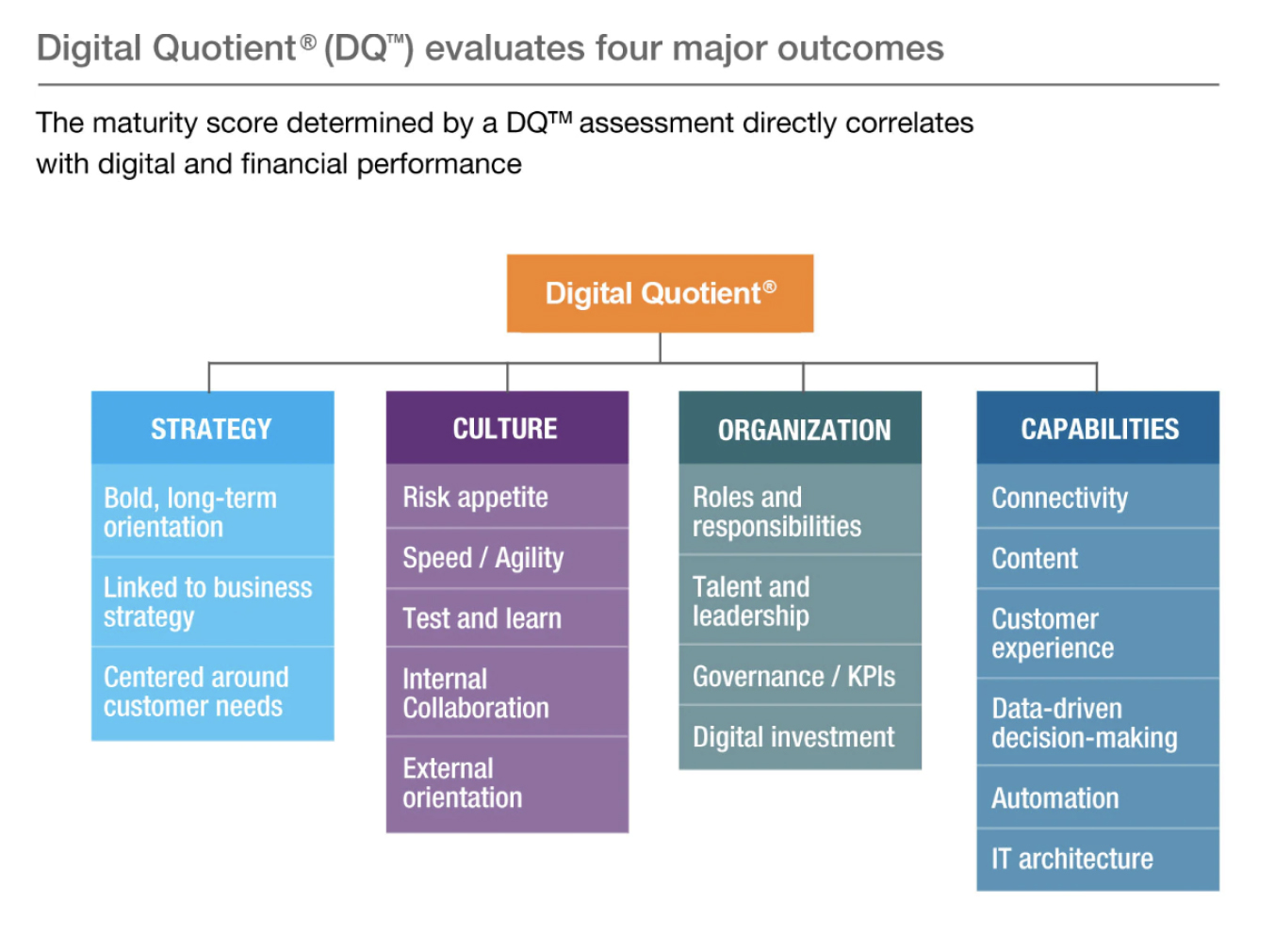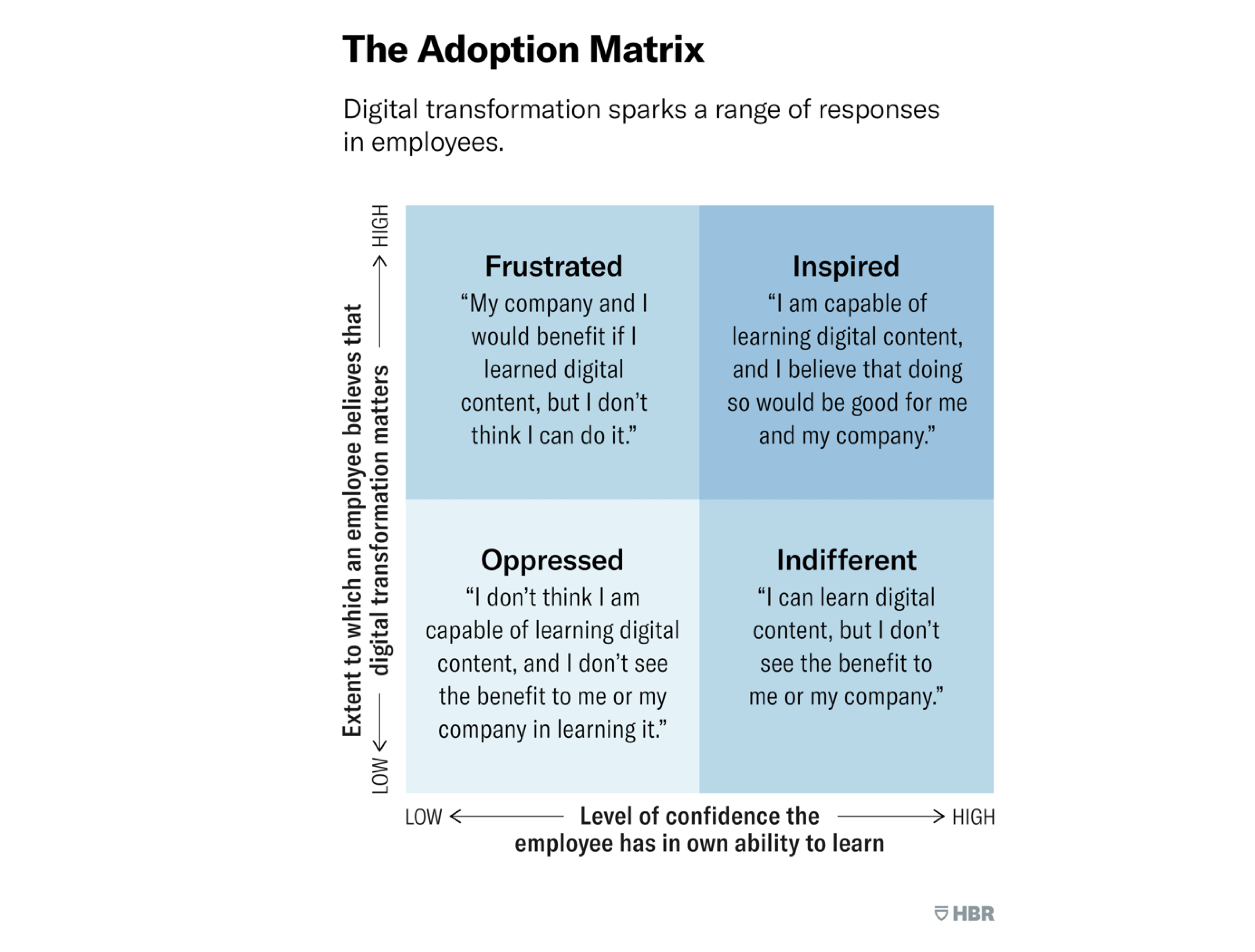

Digital Transformation
Written by
Sandeep Ozarde
Written by
Sandeep Ozarde
Digital Transformation
Successful adoption of a digital culture requires a change in attitude and conduct across an entire organisation, and this shift must come from the top. The risks of stagnation, employee resistance to change, and the failure of digital transformations across the board increase in the absence of a robust digital culture. There are still many businesses that cling to outdated management models and have cultures that are incompatible with digital innovation and transformation. A company's ability to successfully reinvent itself in the digital age is severely compromised without the right culture.
It's true that you'll need to make some adjustments to your technology, your innovations, and your staff in order to achieve digital transformation, but without the proper culture, it's all but impossible to succeed. Organisational culture is crucial for the success of any digital initiative because it must be flexible and adaptable to keep up with the changes brought on by your digital transformation. The success of any digital transformation effort depends on the company's ability to foster a culture that not only embraces but actively promotes the transformation itself. A true digital culture calls for everyone in an organisation to be flexible, just as it's important for leaders to be able to adjust corporate strategies in response to shifts in the market and customer needs.
Leading digital companies track and communicate digital KPIs frequently, sometimes in real-time. They compare those KPIs to digital priorities and make sure senior management monitors them. To optimise Starbucks' new point-of-sale system, managers videotaped transactions and interviewed staff. That feedback allowed the company to cut ten seconds off any mobile or card-based transaction, speeding up sales and saving customers 900,000 hours of waiting in line.
To gain a more precise understanding of the digitisation challenge facing businesses today, McKinsey has conducted an in-depth diagnostic survey of 150 companies worldwide. By evaluating 18 practices related to digital strategy, capabilities, and culture, McKinsey has developed a single, simple metric for the digital maturity of a company—what might be called it's Digital Quotient, or DQ.

Credit: Digital Quotient® McKinsey. Raising your Digital Quotient.
Due to the high degree of personalisation possible in digital settings, the need for adaptability and rapid prototyping is even more pronounced than in traditional change management initiatives. Businesses today need to improve their efficiency through the use of technology wherever it is available if they are to keep up with the rapid pace of digital change.
When companies approach digital transformation as a cultural shift, they can direct their employees' efforts toward improving the areas of their jobs that can use the most improvement. That way, they feel like they have a hand in the digital transformation process and can see the new technologies as a way to improve their existing skillsets. The vast majority of workers who reported that their companies were undergoing a digital transformation had a favourable impression of the process.
Workplace culture, employee expectations, and employee engagement methods are all shifting due to digital transformation. Torben Rick, a Danish business leader and leadership writer, claims that digital transformation is less about technology and more about organisational flexibility, with culture playing a crucial role in any such transformation. Cultures play a pivotal role in the transition because they provide the foundation for a company's ability to adapt sustainably to change through innovation, agility, and flexibility. The company as a whole, from employee morale to new product creation, will benefit from a culture shift.
Leadership and employee engagement are crucial for any culture to succeed, but especially so in the digital realm. In order to increase employee engagement, it is essential that leadership be activated throughout the company's culture. This is especially true for a digital culture, which places a premium on individual agency, sound judgement, a focus on the customer, and an entrepreneurial spirit. The foundations of an organisation's culture are the leadership; the way employees interact with one another, the processes that drive operations, and so on. Employee involvement in the transformational project should be just one example of how companies cultivate employees' sense of belonging.
HBR, The Adoption Matrix: In a digital transformation, the two dimensions combine to produce the four quadrants of a matrix of responses: oppressed, frustrated, indifferent, and inspired. In the best-case scenario, people will be in the top right quadrant, inspired by the change and believing that they have the capacity to learn digital content. Managers should assess which quadrant each of their team members falls into and then work to move individuals from one to another as needed.

Credit: Harvard Business Review, The Adoption Matrix
Leaders should participate in the change, inspiring a shift in their teams' worldviews. It's important that your staff knows they're making a difference in the transformation and that they're helping to drive the change. Training your staff to use the available digital resources effectively is essential for success in today's competitive job market.
By paying close attention to and making concerted efforts to preserve, the organisation's culture throughout the transformation, the gap between the organisation's adoption of new technologies and its employees can be bridged. According to a recent survey of global CEOs by McKinsey, shortcomings in organisational culture are among the top obstacles for companies succeeding in the digital era. Many of today's most prosperous businesses recognise corporate culture's importance. According to the McKinsey study, one of the main causes is that leaders don't adequately inform their staff of upcoming changes and don't establish digital cultures conducive to achievement.
It is important to remember that going digital does not mean putting people out of business when making cultural shifts in the workplace. Support for reimagining the digital experience is necessary for a successful cultural shift, and this support must permeate the organisation from the top down to the frontline workers.
Because of the radical nature of a company's shift to digital operations, pilot programmes overseen by top executives are the norm. To take action, exceptional leaders are needed to run trials of the next digital models, which will help companies figure out what they need to adjust in order to embrace digital transformation fully.
Organisations must be willing to constantly question the status quo, try new things, and accept failure as a natural part of the digital transformation process. According to Rick, a digital culture shift is one that motivates the adoption of new technologies. This is the transition from analogue to digital cultures, where decisions were previously based on factors such as market research, detailed business cases, and internal reports, to a digitally-driven environment where decisions are made collaboratively across departments using real-time, customer-centric data. The norms of digital culture are radically different from those of the past. This is especially true of the ways in which authority is exercised, decisions are made, and fundamental beliefs about competition and teamwork among employees.
Companies can secure competitive advantages and invest in their long-term, sustainable performance by creating and enforcing a digital culture now. A company's top management that embraces digital transformation can reap the benefits of improved productivity, enhanced data collection, and fresh ideas from their workforce.
Teams must be motivated to use their skills to create new digital opportunities. They must think digital-first. A digital mindset allows people and organisations to see how data, design, algorithms, and AI open up new possibilities and chart a path to success in a business landscape increasingly dominated by data-intensive and intelligent technologies.
Company training and education platforms will be crucial in shaping a digital culture that is open to change as process automation and machine intelligence increasingly impact job roles. Businesses will need corporate cultures and organisations that allow them to remain flexible and responsive to a changing landscape if they are to keep up with the rapid evolution of economies brought on by digitisation and respond to future situations like a pandemic.